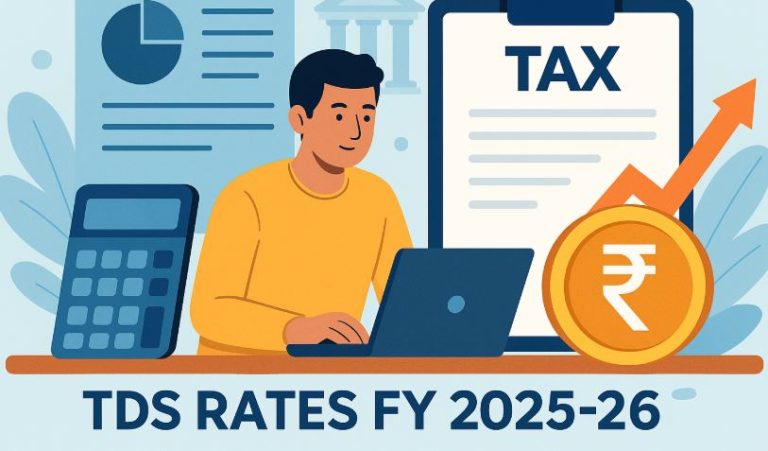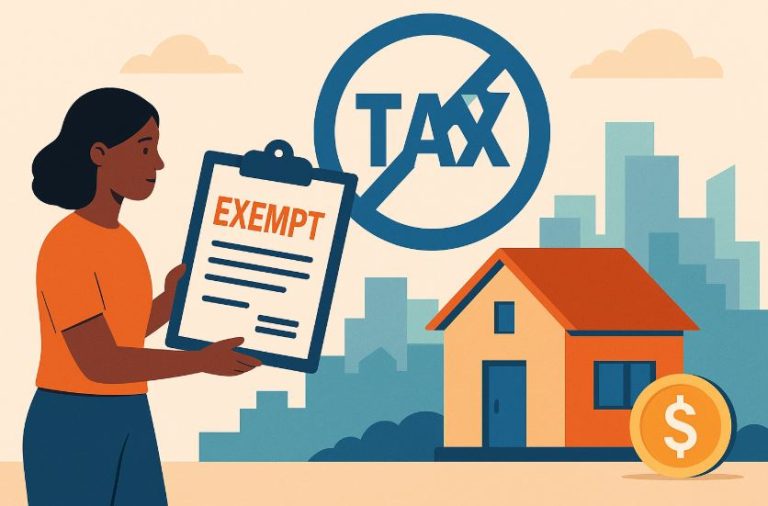Every year, millions of taxpayers in India circle a date on their calendars, the last day to file their income tax return. In 2025, this date has shifted once more, and if you are wondering whether you get extra time to file your ITR, the answer is yes.
This announcement, popularly discussed as the Income Tax Due Date Extension Latest News, comes as a relief for salaried individuals, Hindu Undivided Families (HUFs), and others who do not require their accounts to be audited.
The new extension not only gives more breathing space but also impacts penalty timelines, belated return deadlines, and advance tax schedules. However, extra time should not mean extra delay, because interest and penalties still apply if you miss the extended dates.
This guide explains everything, from the updated deadlines for different taxpayer categories to the consequences of missing them, along with what options remain open if you still cannot file on time.
What Is the New ITR Filing Due Date for FY 2024-25 (AY 2025-26)?

The CBDT has extended the ITR filing deadline for taxpayers who do not require an audit. For the Financial Year 2024-25 (Assessment Year 2025-26), the last date for these taxpayers to file returns is now 15 September 2025, moved from the original deadline of 31 July 2025.
This change applies mainly to individuals, HUFs, Association of Persons (AOPs), and Body of Individuals (BOIs) who are not subject to audit requirements.
The extension provides an additional six weeks, allowing taxpayers more time to gather documents such as Form 16, bank interest certificates, investment proofs, and other income details.
It also aligns with the release of the Income Tax Department’s updated utilities for ITR forms, including ITR-1, ITR-2, ITR-3, and ITR-4, which are already available for e-filing on the official portal.
Why This Deadline Matters?
Missing the extended date of 15 September 2025 does not mean you cannot file at all, but it does mean you will need to pay interest under Section 234A on unpaid tax and a late fee under Section 234F.
In addition, certain tax benefits, such as carrying forward capital losses, are only available if you file within the due date.
Why Did the CBDT Extend the Income Tax Due Date for Non-Audit Taxpayers?
Extensions to the income tax filing deadline are not unusual in India, especially when there are operational delays, system updates, or broader economic considerations. The CBDT’s decision to extend the due date for FY 2024-25 appears to be influenced by several practical factors:
System Preparedness
The e-filing portal needs to accommodate millions of returns, and any delay in releasing updated ITR forms or utilities can justify giving taxpayers more time.
For 2025, the updated Excel and JSON utilities for ITR-1 to ITR-4 were released relatively close to the original deadline, leaving limited time for taxpayers and tax preparers.
Administrative Load on Tax Professionals
Chartered accountants and tax consultants handle large volumes of returns, and a short filing window can cause operational strain. The extension helps spread the workload more evenly, improving accuracy and reducing filing errors.
Public Convenience
An extended deadline is especially helpful for salaried employees who receive investment proof verifications, bonus payments, and final tax deduction statements late in the financial year. It ensures that people can claim all eligible deductions without rushing.
Income Tax Due Date Extension Latest News

For FY 2024-25 (AY 2025-26), the CBDT has set distinct deadlines depending on whether the taxpayer requires an audit, has international transactions, or is filing revised or belated returns. The table below summarises the applicable timelines.
Updated ITR Deadlines for FY 2024-25
| Category of Taxpayer | Due Date for Filing ITR | Notes |
| Individuals / HUF / AOP / BOI (no audit) | 15 September 2025 | Extended from 31 July 2025 |
| Businesses requiring audit | 31 October 2025 | Applies to firms, LLPs, companies under audit |
| Businesses with transfer pricing reports | 30 November 2025 | For international or specified domestic transactions |
| Belated or revised returns | 31 December 2025 | After due date but within the assessment year |
| Updated returns (ITR-U) | 31 March 2030 | Up to 4 years from end of relevant AY |
These timelines are critical for planning tax compliance, especially for those with complex incomes or cross-border transactions. Filing beyond these dates triggers penalties, which we will discuss in detail later.
What Are the Penalties and Interest for Missing the ITR Filing Due Date?
Filing your income tax return after the due date is not just a matter of ticking the box late, it comes with direct financial consequences. The Income Tax Act lays out specific interest rates and penalty amounts that apply the moment the due date is missed.
Interest Under Section 234A
If you have any unpaid tax when the due date passes, you will be charged interest at 1% per month or part of the month until the tax is fully paid.
This interest is calculated from the day after the deadline up to the date you actually file your return and make the payment. Even a small delay can add up significantly over multiple months.
Late Filing Fee Under Section 234F
The late filing fee is a fixed penalty, determined by your total income:
| Total Income | Late Filing Fee (Section 234F) |
| Above ₹5 lakh | ₹5,000 |
| Up to ₹5 lakh | ₹1,000 |
This fee is separate from interest under Section 234A and must be paid before filing a belated return.
Impact on Loss Carry Forward
One lesser-known consequence of missing the due date is the inability to carry forward certain losses, such as capital losses from stock market investments or business losses.
Filing after the deadline means you lose the option to offset these losses against income in future years, potentially leading to higher tax liabilities down the road.
Minimal delay can save you from both extra payments and the loss of valuable tax benefits.
Can Taxpayers Still File a Belated Return After the Extended Due Date?

Yes, even if you miss the extended deadline of 15 September 2025, you still have the option to file what is known as a belated return. Under Section 139(4) of the Income Tax Act, a belated return can be filed up to 31 December 2025 for the relevant assessment year.
Conditions for Filing a Belated Return
- You must pay any applicable late filing fee under Section 234F before submission
- Interest under Section 234A applies on unpaid tax
- The return must be filed using the same form applicable to you during the original due date
Limitations of a Belated Return
- Certain losses cannot be carried forward
- Processing may take longer due to higher volume of late filings
- Refunds, if any, may be delayed
Filing late is always better than not filing at all, but the cost in terms of penalties, interest, and lost benefits makes it wise to file within the original or extended time frame.
How Does a Revised Return Help Correct Errors in Filed ITR?
Mistakes happen. Whether it’s forgetting to report some interest income, entering incorrect bank details, or missing a deduction claim, errors in ITR filing are common. The good news is that the law allows you to correct them by filing a revised return.
Due Date for Revised Return
For FY 2024-25 (AY 2025-26), you can file a revised return any time up to 31 December 2025, as long as it is within the assessment year.
Example of Revised Return Use
Suppose a taxpayer filed their ITR in June 2025 but later realised they forgot to claim an eligible deduction under Section 80C for investments made before 31 March 2025.
They can file a revised return correcting this omission and potentially reduce their tax liability.
Key Points About Revised Returns
- Can be filed multiple times before the due date
- Must be filed in the same form type as the original
- If the original return was belated, you can still revise it within the allowed timeline
Revising your return ensures accuracy and compliance, preventing disputes or notices from the Income Tax Department.
What Are the Key Dates for Advance Tax Payments?
Advance tax is the income tax you pay during the financial year instead of waiting until the end. For FY 2025-26, the due dates for advance tax instalments remain unchanged, but they are important to keep in mind to avoid interest under Sections 234B and 234C.
Advance Tax Payment Schedule for FY 2025-26
| Due Date | Nature of Compliance | Percentage of Total Tax Liability |
| 15 June 2025 | First instalment | 15% |
| 15 September 2025 | Second instalment | 45% |
| 15 December 2025 | Third instalment | 75% |
| 15 March 2026 | Fourth instalment | 100% |
| 15 March 2026 | Presumptive scheme | 100% |
Importance of Timely Advance Tax Payments
Paying advance tax on time prevents accumulation of interest liabilities. It also spreads the financial burden across the year, making tax compliance easier for both individuals and businesses.
What Is the Difference Between a Financial Year (FY) and an Assessment Year (AY)?

Understanding the difference between FY and AY is crucial for interpreting due dates and filing requirements.
Financial Year (FY)
The Financial Year is the 12-month period during which income is earned. In India, this runs from 1 April to 31 March. For example, FY 2024-25 is the period from 1 April 2024 to 31 March 2025.
Assessment Year (AY)
The Assessment Year is the year immediately following the financial year in which the income is assessed and taxed. The AY for FY 2024-25 is AY 2025-26.
| Term | Period | Purpose |
| Financial Year | 1 April – 31 March | Period of earning income |
| Assessment Year | Next 1 April – 31 March | Period of income assessment |
Knowing the difference helps avoid confusion, especially when reading government notifications or filling out forms that require specifying both.
How Does Missing the Due Date Affect Loss Carry Forward Benefits?
If you have made losses during the financial year from investments, business activities, or property, the law allows you to carry them forward to offset against future income, reducing your tax burden in subsequent years.
However, this benefit is available only if the return is filed within the due date, whether the original or extended deadline. Filing late means these losses cannot be carried forward, though you can still set off certain losses like those from house property against current year income.
This rule makes timely filing even more important for taxpayers who engage in stock trading, own rental properties, or run seasonal businesses that may incur losses.
Can You File an Updated Return After the Belated Return Deadline?
If you miss both the due date and the belated return deadline of 31 December 2025, you still have one more option, the updated return (ITR-U).
Time Frame for Updated Returns
You can file an updated return within 48 months (4 years) from the end of the relevant assessment year. For AY 2025-26, the last date will be 31 March 2030.
Purpose of Updated Returns
Updated returns are meant for voluntarily disclosing income that was missed or underreported earlier. They cannot be used to declare a loss, reduce your tax liability, or claim a higher refund than originally filed.
Filing an updated return attracts additional tax, so it should be used carefully and ideally after consulting a tax professional.
Conclusion
The Income Tax Due Date Extension Latest News for FY 2024-25 (AY 2025-26) has provided much-needed relief for non-audit taxpayers, shifting the deadline to 15 September 2025.
While the extra time is welcome, taxpayers must remain vigilant about penalties, interest charges, and the risk of losing valuable benefits like loss carry forward.
Planning ahead, paying advance tax on time, and filing within deadlines, whether original, extended, or belated, remains the smartest approach for staying compliant and financially secure.
FAQs
Is the ITR filing date extended for all taxpayers in 2025?
No, the extension to 15 September 2025 applies mainly to non-audit taxpayers like individuals and HUFs. Businesses requiring audits have different due dates.
What is the penalty for filing ITR late in 2025?
If total income exceeds ₹5 lakh, the late fee is ₹5,000. If income is up to ₹5 lakh, the fee is ₹1,000, plus interest on unpaid tax.
Can I carry forward losses if I file after the due date?
No, most losses such as capital losses cannot be carried forward if you miss the due date, except house property loss.
What is the last date to file a belated return for AY 2025-26?
The last date to file a belated return is 31 December 2025.
Can I revise my ITR if I filed it early but made a mistake?
Yes, you can file a revised return until 31 December 2025.




